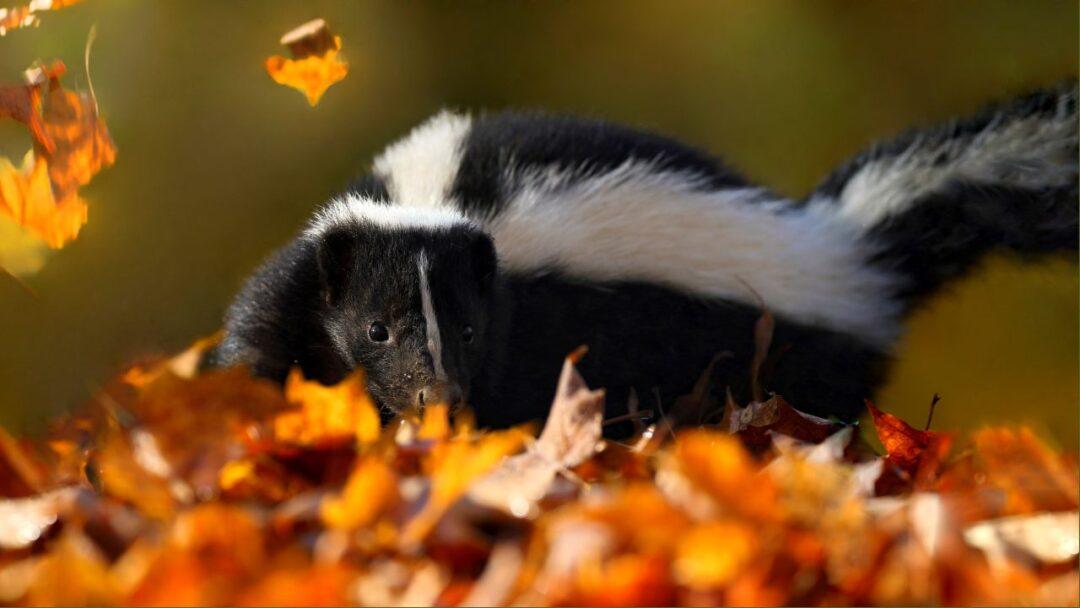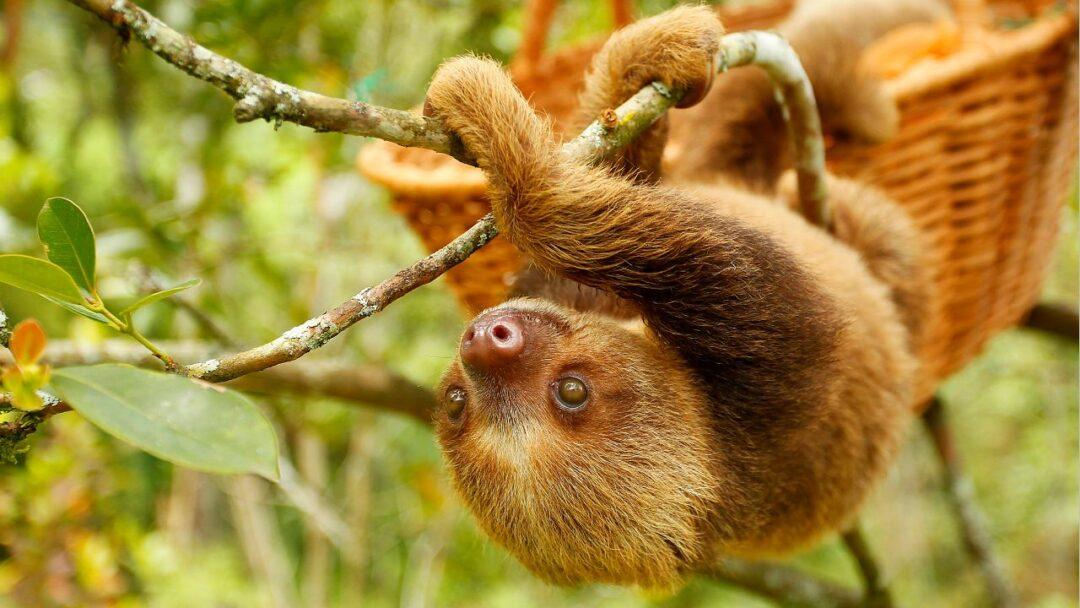Table of Contents

Introduction
Skunks are fascinating creatures that frequently elicit strong reactions due to their unique protection mechanism. However, these interesting animals are more than meets the eye. In this post, we’ll look at ten fascinating facts about skunks, including information on distinct species, puzzling elements, myth-busting, their usefulness to the ecology, and a conclusion that throws light on their true nature.
10 Fascinating Facts About Skunks
- Skunks belong to the family Mephitidae: Skunks are members of the family Mephitidae, which consists of several species, including the striped skunk, spotted skunk, and hooded skunk.
- Striped skunks are the most common species: The striped skunk (Mephitis mephitis) is the most recognized and widespread skunk species in North America. Its distinctive black and white coloration serves as a warning to potential predators.
- Skunks have excellent hearing and sense of smell: Skunks possess keen senses, including a well-developed sense of smell and excellent hearing. Their noses are highly sensitive, aiding them in finding food and detecting danger.
- Skunks are omnivores: Skunks have a varied diet, classified as omnivorous. Their meals consist of insects, small mammals, fruits, nuts, eggs, and even carrion. They are opportunistic feeders, adapting to the available food sources in their environment.
- Skunks are slow and non-aggressive animals: Despite their defensive reputation, skunks are generally non-aggressive creatures that prefer to avoid conflict. They are slow-moving and will resort to spraying only as a last resort when threatened.
- Skunks possess a potent defensive mechanism: Skunks are renowned for their ability to emit a pungent odor when threatened. Their anal glands produce a spray that can accurately target predators, deterring them with its overpowering scent.
- Skunks have a unique warning display: Before resorting to spraying, skunks provide warning signs to potential threats. They stomp their front feet, arch their backs, raise their tails, and emit hissing sounds to discourage predators from getting too close.
- Skunks are excellent diggers: Skunks possess strong front claws and are proficient diggers. They create dens in underground burrows or make use of natural cavities to establish their homes.
- Skunks are nocturnal creatures: Skunks are primarily nocturnal animals, meaning they are most active during the night. They have adapted to this lifestyle, utilizing their excellent night vision and sense of smell to navigate and find food.
- Skunks are beneficial to farmers and gardeners: Skunks play a valuable role in controlling pest populations, as they feed on insects, rodents, and agricultural pests. This makes them beneficial to farmers and gardeners, aiding in natural pest control.
Mysterious Facts and Myths
- Skunks have been associated with good luck and protection in some Native American cultures.
- There is a myth that skunks can accurately aim their spray up to 15 feet, but in reality, their range is generally shorter.
Importance to Ecosystem
Skunks help the ecosystem in a variety of ways. They assist maintain balanced populations and avoid pest-caused agricultural and garden damage by preying on insects and small mammals. Their scavenging habit promotes nutrient recycling by assisting in the decomposition of dead animals.
Are skunks dangerous?
Skunks are usually harmless unless provoked or threatened. They have a natural defense mechanism that they use as a deterrent in the form of a strong-smelling spray. If you come across a skunk, keep your distance and avoid startling or alarming them.
How far can a skunk spray reach?
Skunks have an impressive ability to spray their defensive odor precisely and accurately. Their spray can reach up to 10 feet (3 meters) away on average. It’s best to keep a safe distance from skunks to avoid any unpleasant encounters with their spray.
What should I do if my pet gets sprayed by a skunk?
If your pet is sprayed by a skunk, you must act quickly. To begin, keep your pet outside to prevent skunk odor from spreading inside your home. To make a homemade skunk odor removal remedy, combine hydrogen peroxide, baking soda, and dish soap. Apply the mixture to your pet’s fur thoroughly, taking care to avoid the eyes and mouth. After that, thoroughly rinse your pet. If the odor persists or your pet exhibits signs of distress, it is best to consult a veterinarian.
How can I prevent skunks from entering my property?
To prevent skunks from entering your property, take the following precautions:
1. Securely seal all garbage cans and compost bins.
2. Eliminate potential food sources like fallen fruit, pet food, or accessible bird feeders.
3. Seal any openings or gaps in your house’s foundation, fences, or sheds.
4. Keep your yard well-maintained, reducing potential hiding spots.
5. Install motion-activated lights or sprinklers to deter skunks.
6. Consider using skunk-repellent products, such as ammonia-soaked rags or commercial repellents (following label instructions).
Can skunks climb?
Skunks are not skilled climbers, but they can scale certain structures if motivated. They have short, stout legs with long claws that allow them to dig and burrow rather than climb. Skunks prefer to stay close to the ground, but they can climb low fences or use objects near structures to get to food or shelter.
Are skunks carriers of diseases?
Skunks can transmit diseases such as rabies, though the prevalence of rabies in skunks is low. It’s critical to avoid direct contact with skunks or other wildlife, and to keep your pets’ vaccinations up to date. If you suspect a skunk on your property is acting strangely or is ill, you should contact local animal control or wildlife authorities for assistance.
What do skunks eat?
Skunks eat both plant matter and small animals, making them omnivorous. Insects, grubs, small rodents, amphibians, bird eggs, fruits, berries, and plant matter make up their diet. Skunks have a diverse palate and can adjust their food preferences based on availability and season.
How long do skunks live?
Skunks in the wild have an average lifespan of 2 to 4 years due to factors such as predation, disease, and environmental hazards. Skunks kept in captivity or in protected urban environments, on the other hand, can live for 7 or 8 years.
Do skunks hibernate?
Skunks do not hibernate, but they may go into torpor during the coldest months of the year, especially in northern areas. Torpor is defined as a temporary decrease in metabolic activity and body temperature in order to conserve energy. During this time, skunks may congregate in communal dens to share body heat, but they remain relatively active and can venture out in milder weather conditions to search for food.
Conclusion
Skunks are extraordinary creatures with special traits and an important part in the ecosystem. Skunks are mainly non-aggressive animals that seek peaceful cooperation, despite their frightening defense mechanism. Understanding their behavior and significance in nature allows us to understand and respect these one-of-a-kind mammals.
10 Fascinating Facts About Hyenas : NEXT POST




